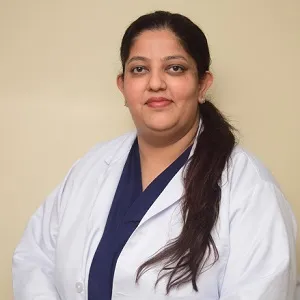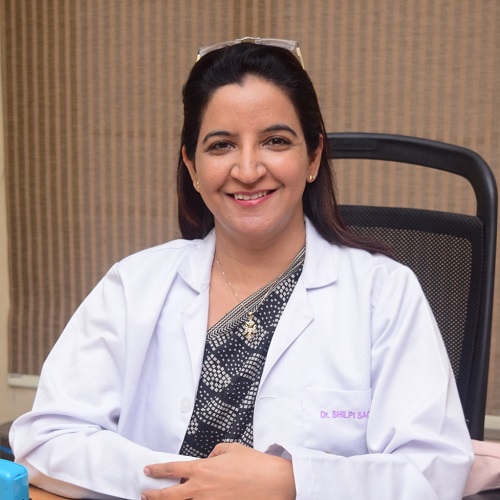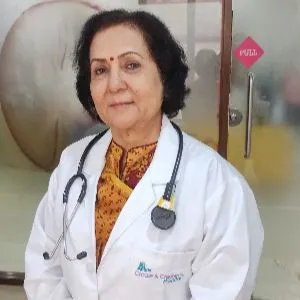What is Colposcopy
To determine if you have abnormal cells on or within your cervix or vagina, you may undergo a technique called a colposcopy. The cervix is located in the vaginal canal, a vital female reproductive system component.
The area where the cervix opens into the birth canal is a common site for congenital malformations. A colposcopy allows a physician or gynaecologist with appropriate training to detect these irregularities.
The chance of developing cervical cancer is associated with the existence of 'abnormal cells' in some women. A colposcopy can tell you if these cells are severe enough to necessitate treatment.
Why is a Colposcopy done?
If abnormal results were found during a Pap test or pelvic exam, your doctor might suggest a colposcopy.
Colposcopy is used in the diagnosis of:
- Genital warts
- Cervix inflammation (cervicitis)
- Precancerous changes in cervix tissue
- Precancerous changes in the vulva
- Precancerous changes in vaginal tissue
When should I see a doctor?
Symptoms that may point to a more serious problem include:
- Heavier-than-normal menstrual bleeding
- Chills and fever
- Abdominal discomfort that is both severe and constant
What can you expect from a colposcopy?
A colposcopy often doesn't cause more discomfort than getting a Pap test. There is no need for sedation or painkillers. In general, you may count on the following:
- Your feet will rest in stirrups while lying on a medical exam table.
- The cervix can be seen by inserting a device called a speculum into the vagina.
- The colposcope allows your doctor to see the inside of your vagina and cervix for a more thorough examination. For your provider to examine your cervix while still sitting at your feet, they will use a device called a colposcope, which has a built-in light and binocular-like optics. The colposcope will not enter the vagina at any point.
- Your healthcare professional will apply a vinegar solution to your cervix with a cotton swab. A mild burning sensation is possible.
- If your doctor notices any suspicious regions during a colposcopy, they may perform a biopsy to obtain tissue for further analysis.
How do I get ready for a colposcopy?
Your doctor will go over the procedure with you, and you will have the opportunity to ask questions.
- Your participation in the procedure may necessitate your signing a consent form. If you have any questions after reading the form, please feel free to ask them.
- As a rule, there is no requirement for premedication or fasting. However, fasting instructions may be given after midnight the night before a biopsy under regional or general anaesthesia.
- Tell your doctor if you are pregnant or think you might be pregnant.
- Please let your doctor know if you have any known allergies, including to drugs, latex, tape, iodine, or anaesthesia.
Try Not To Worry
An easy, non-invasive procedure like a colposcopy can put your mind at ease. A colposcopy is a valuable tool for helping doctors detect cancer and precancerous cells at an early stage when they are more amenable to therapy. Early detection and treatment of cervical cancer results in a high success rate of curing the disease. Cancer can also be ruled out through a coloscopy. Before your appointment, talk to your doctor about your fears about cancer and the possible results.
Request an appointment at Apollo Cradle, DELHI-NCR - Moti Nagar. Call 1860-500-4424 to book an appointment.
Colposcopy is performed with minimal discomfort. When the speculum penetrates your vagina, you may feel a little pressure. When the solution contacts your cervix, you may experience a mild burning or stinging sensation. A severe pinch or a period cramp-like sensation may be experienced to get a tissue sample for a biopsy.
Don't stress. There is a low possibility that you have cancer. Additionally, even if you have precancerous cells, they will not likely progress to cancer while you wait for your scheduled appointment. If your doctor does a colposcopy, they may be able to detect and cure any precancerous cells they find.
Your gynaecologist can do a colposcopy. Colposcopists are medical professionals who are sometimes relied upon to perform the procedure. According to the available evidence, detecting precancerous cells in their earliest stages improves when a trained medical practitioner carries out the process.
Colposcopy procedures may be performed in a hospital or private practice. As a rule of thumb, plan on spending between 10 and 20 minutes for the entire process. There's a good chance you'll be able to recover and return home the same day as your surgery.
The typical turnaround time for biopsy findings is between 2 to10 days. Ask your doctor when you may expect results and how they will communicate the most important information to you.

 98% Patient Satisfaction Score
98% Patient Satisfaction Score










